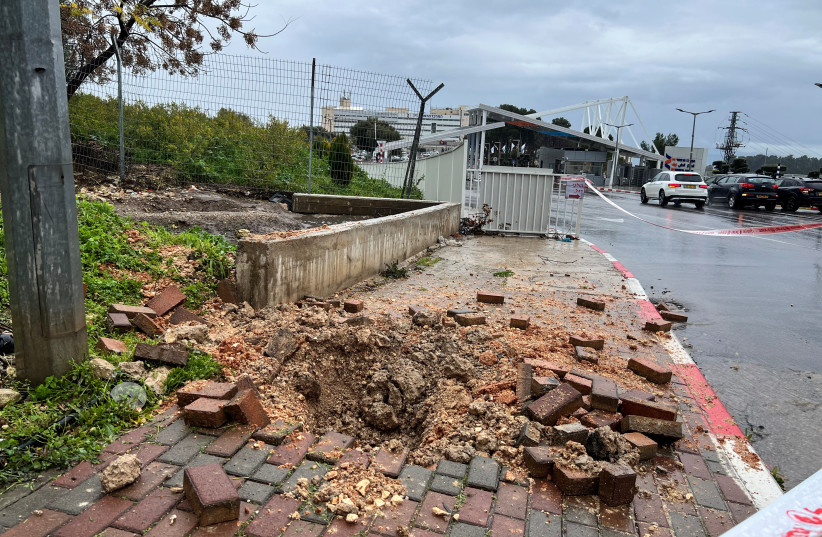Many of the workers who were sent on unpaid leave since the outbreak of the war are at risk of losing their unemployment benefits. Many others have already lost them and are left without a source of income. For now, the state isn't offering them solutions.
Meirav Ben-Zaken, the marketing manager of "Fish on the Dan", and a member of the "Shield of the Lebanon Border" forum for the protection of towns that were not evacuated, shared that she is in a state of uncertainty, which is felt by many others in the north.
"We are neither evacuated nor relieved; we are simply people who woke up one morning and the state closed our workplaces. We want to go to work, but due to the security situation, we are not allowed. Now all of us need to cope with the psychological, physical, and economic consequences," said Ben-Zaken.
"They need to understand us; we have no holiday. Our children aren't enjoying their time with us because it's not safe here," said Ben-Zaken, who lives in Kibbutz Kfar Blum in the Galilee, a town that wasn't evacuated by the Defense Ministry.
"Everyone knows Kfar Blum as the place where missile sirens are heard from Lebanon, but it's beyond that; people live here," she chuckled. "We are at the bottom of the government's priority list. In a few days, my unemployment benefits will end, and I won't be able to look for another job. I don't know what will happen to me tomorrow. We have no organization, and every government office just throws us around."

Ben-Zaken added that, like her colleagues, she's celebrating Passover alone out of fear of escalated security tensions. "They love our holidays," she said, referring sarcastically to the Hezbollah terror organization.
"I sent my child far from here on the holiday, and I watched TV alone. My child hasn't left the house for half a year, other children are experiencing regression in their behavior. The education system is not functioning regularly; we don't even have warning time from sirens, not even 15 seconds, and all we have left is to hear the sounds of explosions around us. In addition to all this, the nearest appointment at a resilience center is another half a year away," she added.
Ben-Zaken and her colleagues have a proposed solution: reimbursement from the government to any employer who continues to employ their workers. However, this solution, or any other, is not being implemented.
"A business owner who hasn't made money for half a year cannot employ workers out of charity and then hope the government will reimburse him. He has no guarantee that the government will help him with that," she stated. "I want to see the treasury officials, the Knesset members, and the government ministers coping well if they were told that at the end of the month, they will run out of money. I'd like to see them deal with it without passing their troubles onto others."
Those attempting to assist in this matter include Labor MK Efrat Rayten, who toured the north with residents and is trying to hold a special debate in the Knesset on the situation, despite the Knesset being in recess. "It's time for the state to listen to us," emphasized Ben-Zaken.
Appeals have been made to the Labor Ministry
The Forum for Combating Poverty and Attorney Becky Cohen-Keshet have also joined the struggle and appealed to the Labor Minister, Yoav Ben-Tzur, on behalf of the residents of the north, the Upper Galilee, and the remaining confrontation line, demanding that he intervene.
"Those who are evacuated receive defense and support, including a commitment that their employers, according to government programs, will receive full compensation for the salary paid to them while they cannot work. However, precisely the population that needs maximum assistance is not included in this protection because they are not evacuated. These are people whose workplace is evacuated or closed by the military, or in similar cases," explained Attorney Cohen-Keshet.
In a letter to Labor Minister Ben-Tzur, she explained that there is a significant decrease in job opportunities in the northern region. The areas most affected are tourism or jobs with people, as most of the population is evacuated. Parents struggle to plan schedules because of the irregular activity of the education system, and many workplaces are not protected, nor is the path to them.
So what do we do?
"We need to extend unemployment benefits or grants as given to the evacuated. This is a necessary and proper response to these residents," Attorney Cohen-Keshet replied in the letter. "Has the State of Israel decided to subjugate its war-affected workers just before Passover? Employers, with many of whom we have spoken, clarified that they cannot pay employees and wait for reimbursements for various reasons," the Labor Ministry referred the response to the Finance Ministry , which has not yet responded to the issue.
